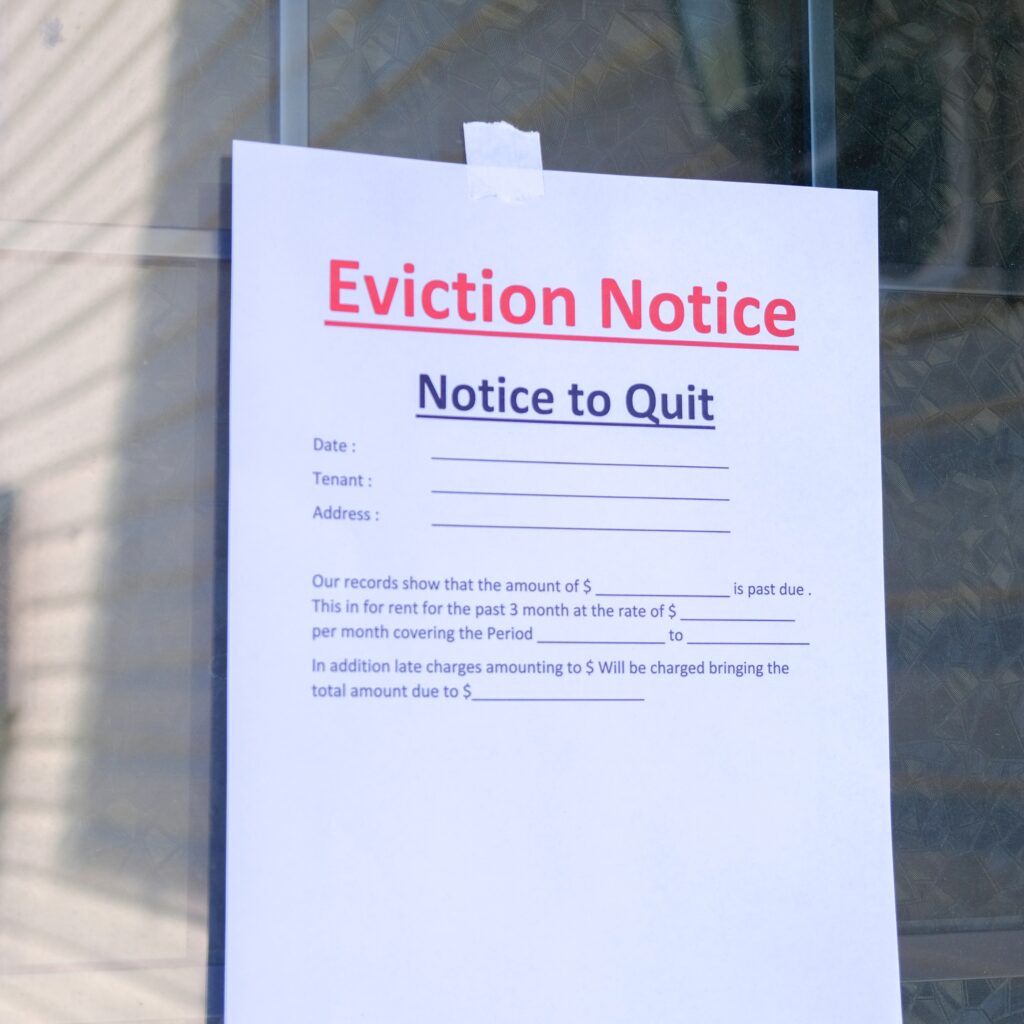As a landlord or property manager in Florida, dealing with a non-paying or problematic tenant isn’t just frustrating—it’s stressful, time-consuming, and often emotional. You’re running a business, managing properties, and trying to protect your investment. But when things go south with a tenant, knowing how to file for eviction in Florida—the legal way—is crucial.
We’ve worked with hundreds of landlords and real estate professionals across the state. And if there’s one thing we’ve learned, it’s that no two evictions are ever the same—but the checklist of legal steps you must follow is. This blog is designed to guide you through the process like a trusted paralegal would: practically, and without the legal jargon overload.
Whether you’re new to the eviction process or want a refresher, this guide will help you navigate your way through the maze of Florida eviction services, legal notices, and court filings.
Step 1: Identify the Reason for Termination of Tenancy
Before taking any action, you need to understand the reasons for ending the rental agreement. The termination of tenancy determines the type of eviction process, the legal notice required, and how long you must wait before filing in court.
Common legal reasons for termination of tenancy in Florida:
- Non-payment of rent (most common)
- Lease violations (like unauthorized pets or property damage)
- End of lease with no renewal
- Holdover tenants (they stayed after their lease expired)
Each reason requires a different type of legal notice and waiting period. For example:
- Non-payment of rent: 3-Day Notice to Pay or Vacate
- Lease violation: 7-Day Notice to Cure or Vacate
- No lease or end of lease: 15-Day Notice to Terminate Tenancy (for month-to-month)
Not sure which notice is right for your case? Check out our Florida eviction notice guide to learn how 3-day, 7-day, and 15-day notices work and when to use each.
Quick Tip:
We know it’s frustrating—especially if you’ve tried to be patient with your tenant. But even when emotions are running high, staying professional and following the letter of the law is your best move. A small misstep here could cost you time and money. It’s okay to ask for help—we’re here to walk you through it.

Step 2: Draft and Serve the Correct Legal Notice
This step is critical. Mistakes in this part of the process can delay or derail your eviction case.
Florida law requires that the notice:
- Be in writing
- Clearly state the reason for eviction
- Give the proper time frame to comply
- Be delivered legally: in person, posted on the door, or sent by mail
📝 Example: If you’re evicting for non-payment, your 3-day notice shouldn’t include weekends or holidays. It must be business days only.
Preparing and serving a notice of termination of tenancy is a critical legal step in the eviction process. If you’re unsure about the type of notice to serve or how to serve it properly, our guide breaks down the requirements clearly for Florida landlords.
Step 3: File the Eviction Lawsuit
If the tenant doesn’t comply after the notice period, it’s time to escalate—by filing a formal eviction lawsuit with the county court.
You’ll need:
- A Complaint for Eviction
- A copy of the lease
- A copy of the notice you gave the tenant
- Proof that the notice was served properly
- The filing fee, which varies by county
Filing documents incorrectly—or missing even one detail—can derail the process. That’s why many landlords hire paralegals or legal document assistants who specialize in Florida eviction services to prepare court-ready documents.
✅ Important Note: Some counties also require an accompanying Affidavit of Non-Military Service, which certifies the tenant isn’t in active military duty.
Step 4: Serve the Summons and Complaint to the Tenant
Once the complaint is filed, the court will issue a summons. This needs to be legally served to the tenant—typically by a sheriff or a certified process server.
The tenant then has 5 business days to respond. If they do, the case may go to a hearing. If they don’t respond, you can request a default judgment for eviction.
🔗 Need professional process serving? Headley Legal Support Services can help.
Step 5: Get the Final Judgment and Writ of Possession
If the judge rules in your favor, congratulations—you’re nearly there.
The next step is to:
- Request a Final Judgment for Eviction
- Ask the court to issue a Writ of Possession
- The sheriff will post a 24-hour notice at the property
After the 24-hour window passes, the sheriff is legally allowed to remove the tenant from the premises.
Reminder: Never attempt to remove a tenant yourself. It’s illegal and could result in legal penalties.
Why Work With Legal Support Services?
Managing rental properties comes with many responsibilities—and the eviction procedure in Florida only adds to the complexity. From preparing legal notices to navigating court timelines, it’s easy to feel overwhelmed or unsure about your next step.
That’s where we come in. At Headley Legal Support Services, we provide the legal support and paralegal experience landlords need to move through the process quickly and correctly.
Here’s how we help you:
✅ Draft and serve proper legal notices
✅ Prepare and file court documents accurately
✅ Coordinate with certified Florida process servers
✅ Avoid delays caused by paperwork errors
✅ Recover possession of your property—legally and fast
Whether you’re evicting a tenant in Tampa, Miami, Orlando, Jacksonville, or anywhere in Florida, we’re here to support you every step of the way. You can also find us on Google to check reviews, hours, or get directions.

Frequently Asked Questions
Q: How long does an eviction take in Florida?
A: It depends on whether the tenant contests it, but most uncontested cases are resolved within 2–6 weeks.
Q: What happens if the tenant fights the eviction?
A: The case may go to mediation or court hearing. That’s why proper documentation and procedures are crucial from the start.
Q: Can I evict a tenant without a lease?
A: Yes. If it’s a month-to-month rental, you must give at least 15 days’ notice before the end of the rental period.
🔗 For more legal resources, visit Florida Statutes Chapter 83
Conclusion: Let’s Make Eviction Easier—Together
Evictions aren’t just paperwork—they’re about protecting your investment, your peace of mind, and your future. The process can feel overwhelming, but you don’t have to go through it alone.
At Headley Legal Support Services, we’ve helped landlords across Florida navigate evictions legally, efficiently, and with less stress. Whether you need help drafting notices, filing paperwork, or understanding your next step—we’re here to support you.
✅ Ready to take action?
Don’t let paperwork mistakes or legal delays slow you down. Let our experienced team help you handle your eviction—fast, legally, and with confidence.
👉 Contact us today to get started with trusted Florida eviction support.


